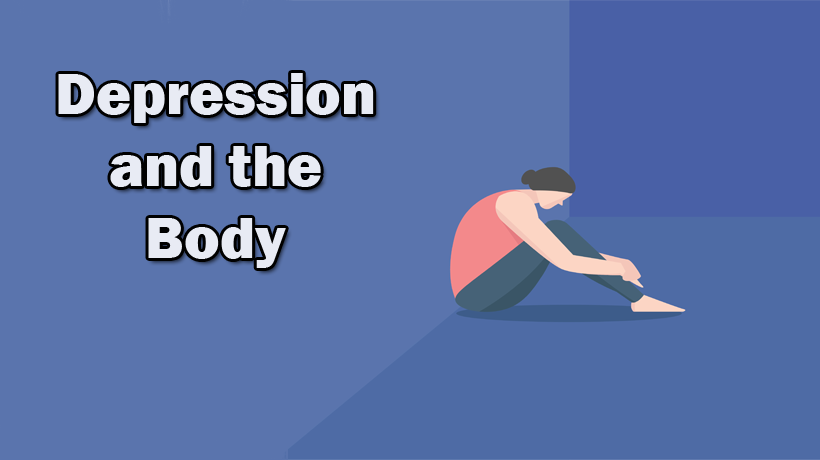Science is helping us understand that there are a number of causes of depression that come from what goes on in our body and show up in our mental health. Here are 4 frequent causes that may help you understand some of the reasons behind why you feel dark or lethargic, and understand more about the mind-body connection.
1. Insomnia: A growing body of research has found that sleep disturbances and depression frequently happen together. One can give rise to the other, so if you don’t sleep well through the night, depression may set in. And when you don’t get enough sleep, exhaustion can make you impatient and look at the negative side of situations.
To move past insomnia you can start by helping your body have the nutrients it needs for better sleep (for example, taking a spoonful of magnesium supplement every night may help you sleep better, feel less anxious.) Similarly, you might want to learn more about cognitive behavioral therapy for insomnia. With cognitive-behavioral approaches, you would learn to condition your body to sleep at a consistent time in a cold and dark room, start a ‘wind down’ time the hour before bed, or even try a ‘paradoxical intervention’, in which you would “try to not sleep” (often this helps you stop stressing about not sleeping, leading you to relax and fall asleep!)
2. Food “frenemies”:
Foods you eat everyday might be unknowingly contributing to you feeling depressed and having a hard time concentrating. Do you eat high levels of processed sugars, refined grains, or commercially-raised animal products or other foods that may be harmful to your health? Also, new research suggests that for many women, an overgrowth of normal levels of candida, a fungal species, can affect the metabolism of dopamine and serotonin, the two neurotransmitters responsible for helping you feel positive.
3. Hormone imbalances – During key times of a woman’s life (e.g. puberty, pregnancy, post-partum depression, and perimenopause) a woman’s hormone levels will go up and down. Hormone levels even fluctuate through each month. Your hormone levels will determine how much motivation you have to go out and be with people, your energy for as well as your ability to think clearly and feel negative vs. hopeful about the future.
Though women across all ages experience depression, it is common when women enter their 40s and 50s to start to feel less able to roll with the punches or even depressed. This can come from a drop in women’s key hormones during this time of life which makes women feel more moody or lethargic. For example, a drop estrogen gives you less serotonin to keep you happy and calm, and less progesterone means less of the factor that gives you calm and promotes sleep. The first step is to know your current hormone levels (by asking your doctor or in-home tests) so you can take action to balance your hormones that is specifically right for you.
4. Lack of Exercise
Regular exercise has shown to be as effective as anti-depressant medication at lifting your mood. But even if you don’t have time to get to the gym regularly, simply going for a moderate to vigorous walk, or doing yoga stretches in your place of residence will improve your sense of well-being. Its easiest to follow through on your intention when you pack your gym bag the night before, and when you promise a girlfriend/accountability partner you will show up.
You can also create movement inside of your body even during times of day when you can’t physically move around your environment. You can accomplish this by breathing exercises that move out stagnant emotions and reconnect you with your purpose. A powerful breathing technique is to do 4 short, segmented in-breaths through your nose, then one long exhale through your mouth. Try starting this for one minute only in case you get lightheaded, then expand to 3-5 minutes regularly. You’ll notice that it moves a lot of negative emotion through you and helps you feel lighter and purposeful.
https://www.psychologytoday.com/us/blog/balanced/201904/the-powerful-link-between-insomnia-and-depression?utm_source=FacebookPost&utm_medium=FBPost&utm_campaign=FBPost&fbclid=IwAR3jWz0vXrZvWz9_VWbrtNeoKy4FzZujxksBDyhhuRWFC8ayfDKDl0W9-60
https://www.psychologytoday.com/us/basics/cognitive-behavioral-therapy
https://www.helpguide.org/articles/healthy-living/the-mental-health-benefits-of-exercise.htm



